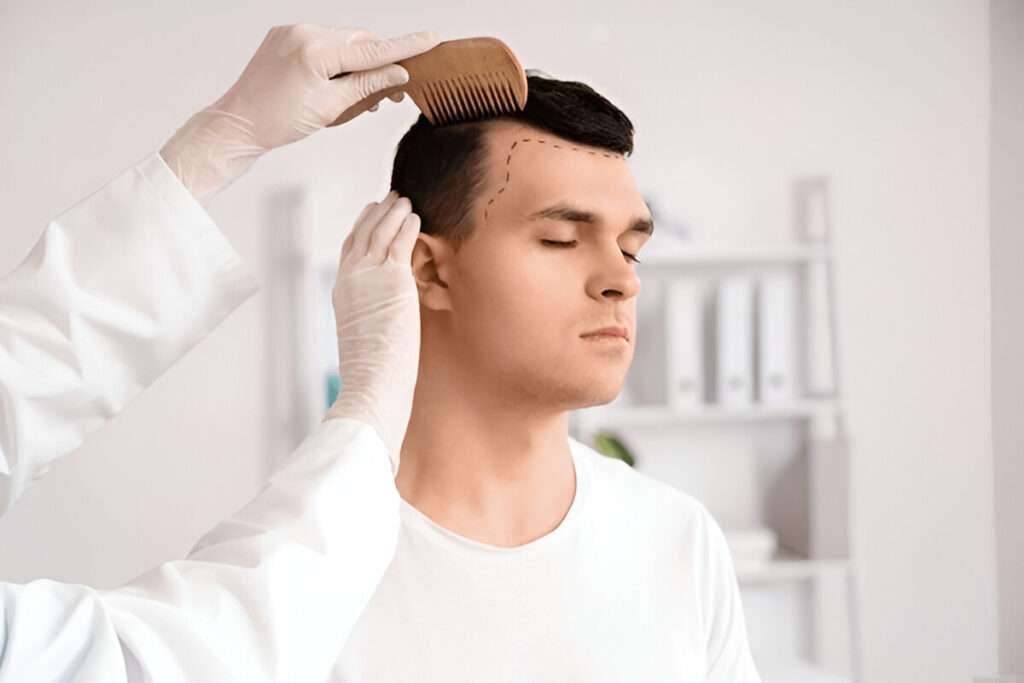Hair loss can affect anyone, regardless of age or gender. For many people, a hair transplant offers hope and confidence. Across the UK, including clinics providing hair transplant Bristol services, thousands of patients choose surgery each year. But is hair transplant surgery safe for everyone?
The answer depends on your health, type of hair loss, and expectations. While the procedure is widely regarded as safe, it is not always suitable for every individual.
How Safe Is Hair Transplant Surgery?
Modern hair transplant techniques, such as FUE and FUT, are considered safe when performed by experienced surgeons. These methods have been refined over the course of decades, reducing risks and improving outcomes.
Most patients experience only minor side effects, such as redness, swelling, or temporary shedding. Clinics offering hair transplant treatments in Bristol provide detailed aftercare advice to ensure a smooth recovery.
However, like any surgical procedure, risks exist. Understanding them helps patients make informed decisions.
Who Makes a Good Candidate?
Not everyone is a suitable candidate for hair transplant surgery. The best results occur when patients have a healthy donor area, usually at the back or sides of the scalp. These follicles are resistant to balding and can provide long-lasting coverage.
Age also plays a role. Surgeons may recommend that younger patients wait until their hair loss pattern stabilises. Otherwise, they risk further thinning in untreated areas. Patients seeking hair transplant consultations in Bristol are often carefully assessed before surgery is approved.
Health Conditions That May Prevent Surgery
Certain medical conditions can make hair transplant surgery unsafe. Patients with uncontrolled diabetes, blood-clotting disorders, or severe heart issues may face higher risks during and after the procedure.
Scalp conditions, such as active infections or severe scarring, can also limit suitability. In some cases, autoimmune conditions like alopecia areata may cause unpredictable results, as transplanted hairs may not grow consistently.
This is why clinics across the UK, including those offering hair transplant procedures, always conduct a thorough medical review before surgery.
The Importance of a Skilled Surgeon
The safety of hair transplant surgery depends heavily on the surgeon’s expertise. Poorly performed procedures can lead to infections, scarring, or unnatural results.
Patients should always check the surgeon’s qualifications, ask to see before-and-after photos, and read independent reviews. Trusted UK clinics take pride in transparency and patient care. Those seeking hair transplant options in Bristol should choose only regulated and reputable providers.
Risks and Side Effects to Consider
Most side effects are temporary. Swelling, scabbing, and minor discomfort usually resolve within two weeks. Some patients may experience temporary numbness or “shock loss,” where existing hairs shed before regrowth begins.
In rare cases, scarring or uneven hair growth may occur. These risks are minimised by choosing an experienced clinic and following aftercare instructions carefully. Patients treated in hair transplant clinics in Bristol often receive comprehensive support to ensure a smooth recovery.
Alternatives for Those Unsuitable for Surgery
For patients who are not suitable for surgery, there are alternatives. Medications like finasteride and minoxidil can slow hair loss. Treatments such as PRP or PRF therapy may also stimulate growth in areas of thinning hair.
Non-surgical solutions, like scalp micropigmentation, can create the illusion of fuller hair without surgery. Many UK clinics combine these treatments with long-term care plans, giving patients options beyond transplants.
Even if surgery is not safe for you right now, other approaches may still restore confidence. Clinics offering hair transplant consultations in Bristol often discuss these alternatives openly with patients.
Emotional Considerations
Hair loss affects not only appearance but also self-esteem. Many people feel more confident after restoring their hair, but the journey requires patience. Results take months to appear, and multiple treatments may be needed.
Setting realistic expectations is key. A qualified surgeon will guide patients honestly, ensuring they understand both the benefits and limitations of surgery. Patients exploring hair transplant services in Bristol should focus on clinics that prioritise long-term support, not just quick fixes.
Final Thoughts
Hair transplant surgery is generally safe, but it is not right for everyone. Factors like age, health conditions, and donor hair quality all influence suitability. By choosing an experienced clinic and following aftercare advice, patients can achieve natural, lasting results.
If you are considering surgery, whether in London, Manchester, or exploring hair transplant Bristol clinics, book a consultation with a qualified surgeon. With the proper guidance, you can decide if hair transplant surgery is a safe and effective solution for you.
